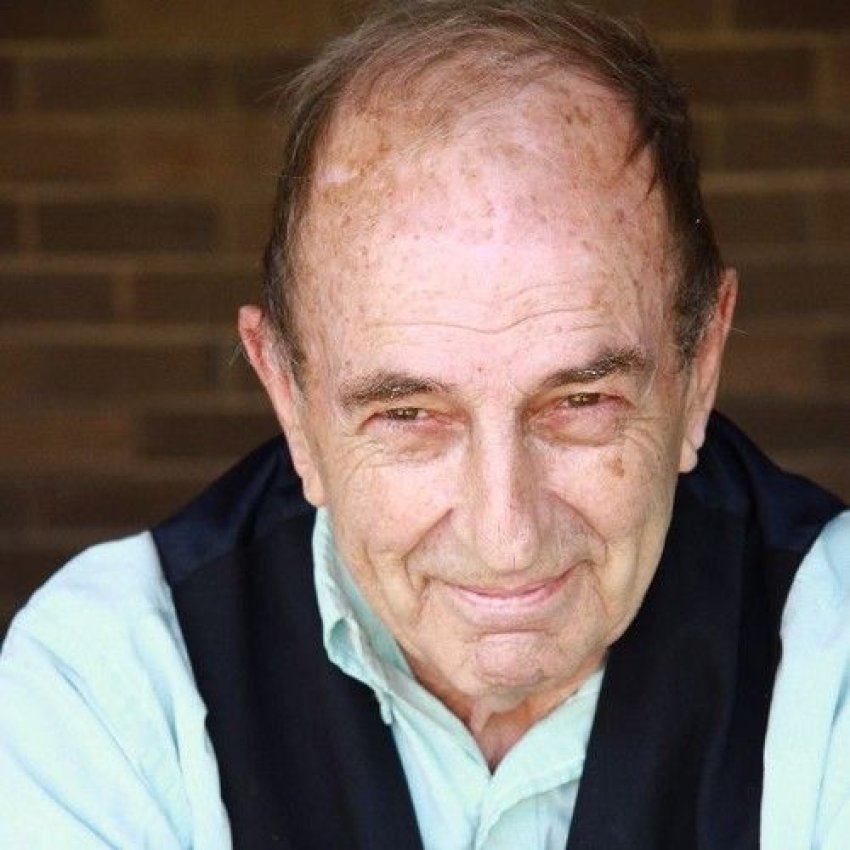
Chris Gaffney passed away on August 14 after a lengthy battle with cancer. An eloquent speaker, walking encyclopaedia of Marxism, talented actor, aficionado of opera and lover of nature and the animals with which we share the planet, he is survived by his long-time partner Jenny Campbell, their son Danny and granddaughter Elsa.
Chris was a larger-than-life character who will be sorely missed by all who knew him — even, one suspects, by those with whom he crossed political swords over almost 60 years of left-wing activism.
Chris’s parents were not well off, but they scrimped and saved to send him and his brother to Melbourne’s Wesley College. Having been in the belly of the private school beast, he realised its function in class society and would have nothing to do with it once he left its overrated portals.
A born rebel, Chris gravitated to the left as a teenager. He joined the Melbourne University Labour Club in the early 1960s, along with the Labor Party and the Young Labor Association, but soon charted a course that was well to the left of the party hierarchy.
Chris was heavily involved in Victorian Labor’s Socialist Left faction before, during and after federal intervention resulted in the Victorian state branch being abolished and then reconstructed, this time without the left in control.
He once stood as the Labor candidate for the safe Liberal seat of Malvern, with his campaign car decked out with notices about the “Malvern Soviet”. It is said, nevertheless, that he increased the Labor vote.
The issue that sparked Chris’s activism was the Vietnam War. In 1964, the Liberal government introduced conscription. The following year, after pestering the South Vietnamese regime for an invitation, Prime Minister Robert Menzies sent the first Australian troops to fight the National Liberation Front in southern Vietnam.
This was the era of the racist and anti-communist “Domino Theory”, which alleged that the Red/Yellow hordes controlled by China were pouring down through Vietnam, and in time would menace Australia’s shores. In fact, the Vietnamese Communists were nobody’s puppets and their aim was to liberate their country from imperialism and its client state in Saigon.
Like many of the best of his generation, Chris was appalled by the endless slaughter of the Vietnamese people and became a convinced anti-war activist. From at least 1968, he was active in the Vietnam Day Committee.
Despite his political activities, however, Chris was a conscientious student and graduated with first class degrees in Arts and Law. The study habits he learned at university stood him in good stead throughout life: he was always a voracious reader and maintained a huge private library, mainly, but not exclusively, of socialist publications.
After graduation, he found employment as a lawyer. The profession was not to his liking, although he practised it intermittently over the decades to pay the rent.
Chris was never a model of sartorial splendour, so he disliked wearing suits and was also once upbraided by a senior partner for eating a pie in the street. After that, Chris worked to live rather than the other way round.
In the late 1960s he discovered the Victorian Labor College, then run by the veteran Trotskyist Ted Tripp, a fitter and turner and self-taught Marxist. Chris learned a great deal from Ted, who encouraged him to further his reading and, in time, to begin giving lectures to the College’s students. After Ted got too ill with Parkinson’s to continue, Chris took over direction of the College and continued his involvement for decades afterwards.
Around this time, Chris began to identify as a Trotskyist, and in 1970 he threw himself into the campaign to oppose the federal Liberal government’s attempt to ban Belgian Trotskyist leader and Marxist scholar Ernest Mandel from entry to the country. Thereafter, Chris was an unswerving supporter of the Mandel wing of the Fourth International. One of the highlights of his life was meeting Mandel in Brussels.
Chris also joined the Trotskyist International Marxist Group during an extended sojourn in London.
From the 1990s, Chris was also a regular broadcaster on Melbourne community radio station 3CR, producing Keep Left and, under his hat as a learned opera buff, Great Voices.
He was a talented actor and had a long-time involvement with New Theatre in Melbourne, writing, acting and producing plays. He also taught acting in a number of Melbourne schools.
On a personal note, I first met Chris one cold winter’s weekend back in 1971 at a two-day conference of Trotskyists in Melbourne’s eastern suburbs. There was, I’m sure, at least one more faction than there were comrades in the room and I had a struggle understanding what the ferocious debates were about!
Chris could give as good as he got, but he found time to befriend me — a hick over for the weekend from my work on a hydroelectric scheme in the Tasmanian bush — and to explain what it was all about.
Chris was a warm and talented person with an engaging sense of humour who could enliven the dullest gathering with his wit. He fought hard throughout his life to make the world a better place than it was when he entered it.